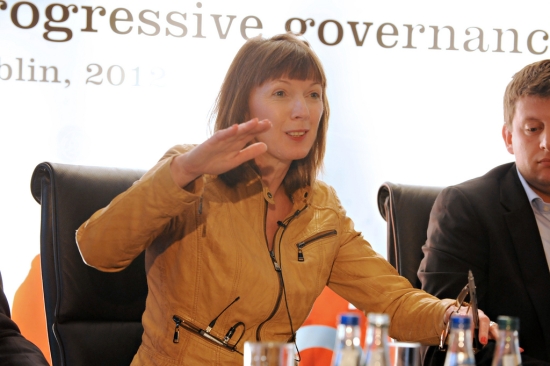While Britain may no longer be in recession, at least officially, it has not necessarily meant a return to prosperity for the nation’s families and businesses. Thanks to low levels of consumer confidence and a rise in the cost of utility bills, businesses can little afford to raise employee wages which means that the average family budget is becoming even more squeezed than it was this time last year.
In fact, figures released this week by the Office for National Statistics (ONS) reveal that food prices have risen by more than three times the rate of average wage growth in the past year. This is bad news for those in the private sector, but even worse for the millions of state workers who have been subject to pay freezes.

Millions of families are feeling the pressure says Frances O’Grady
On average, the wage of a private sector worker has risen by only 1.4 per cent in the past 12 months. Unfortunately, this has been cancelled out by food inflation, which has gone up by 4.5 per cent in the same period.
The issue is further compounded by the inflation rate, which remains at 2.7 per cent – despite the fact that the Government target for inflation remains at 2 per cent.
The last time the Government succeeded in reaching this target was November 2009.
General secretary of the Trades Union Congress (TUC), Frances O’Grady, believes that the economy will remain stagnant until workers begin to earn a proper living wage.
She says; “There has been no let-up in the financial pressures being faced by millions of ordinary families.
“Despite the bargains to be had on every high street last month, the cost of living is rising faster than wages, and household budgets are still under huge strain.
“Unless real wages start to rise again, people will be reluctant to spend, and until they do, our economy is likely to remain in the doldrums.”
Food prices are largely being affected by the poor summer faced by much of the world in 2012. Fruits and vegetables are now largely being imported to the UK from the continent after farmers found their fields too waterlogged for a successful harvest, while corn imports from the United States were affected by the opposite problem – drought.
As a result, bread and cereal prices join fruit and vegetables on the list of items rising in cost, with only meat so far managing to remain at a similar price to last year. However, with poor grain harvests also affecting the cost of animal feed, experts forecast that farmers will soon have to increase their prices in order to make even a small profit in the very near future.
All in all, this spells bad news for the average family. At present, in order to maintain the standard of living enjoyed a year ago, households need to spend an extra £678 per annum. However, should the gap between real wage growth and food inflation continue to widen, this could increase further in the coming months.
Unfortunately, it appears that the tough times facing the nation are here to stay for the foreseeable future. According to the Bank of England, inflation will probably “remain above the two per cent target for the next two years,” leaving families to tighten their belts and wonder what will need to be scratched off the shopping budget next.
Previous Post
Heathrow Announces Plans to Bump Up Prices